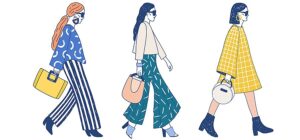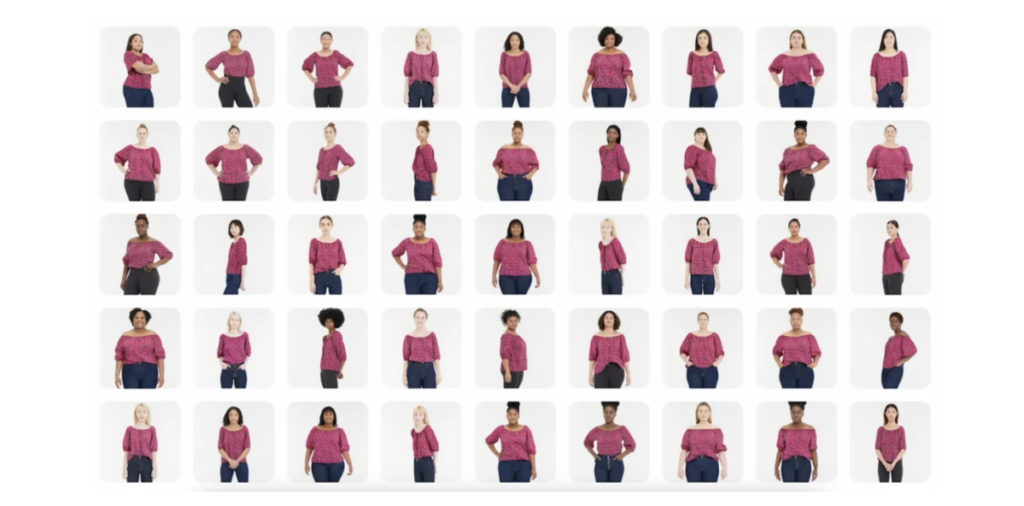AI Fashion: Transforming Style with Technology
Artificial Intelligence (AI) has become an increasingly powerful force in shaping various industries, and the fashion industry is no exception. AI research is rapidly expanding with AI software revenue predicted to reach $90 billion by 2024 and a 14x increase in AI startups since 2000. With its ability to analyze vast amounts of data, recognize patterns almost instantaneously, and make intelligent predictions, AI is set to revolutionize the world of fashion. Fashion, as a whole, has always been on the cutting edge of innovations, cultural trends, and technological advancements. This has allowed the industry to rapidly change and pivot based on consumer preferences and available technology. Because of this, generative AI will unlock many different exciting possibilities in the near future.
AI Fashion, Apparel, Design and Creativity:
AI is poised to transform the creative process in fashion. Designers can harness AI-powered tools to generate more innovative design concepts. This is because designers leverage machine earning algorithms analyzing fashion trends, consumer preferences, and historical data. By augmenting, instead of replacing human creativity with AI insights, designers can push the boundaries of style. This will result in fresh and captivating collections that resonate with consumers and spark new trends. This approach to content creation and design generation will speed up the creative process for tech savvy designers. Generative AI allows the stylist to create a larger range of potential options effortlessly. Because of this, these tech savvy designers are able to create more efficient and accurate designs as opposed to having to rely on trial and error methods or fickle fashion trends.
Streamlining Production with AI Fashion:
In the day of cheap, fast, and unsustainable fashion, efficiency and sustainability are increasingly critical fashion and moral considerations. AI has the ability to optimize the production process from the start, reducing costs and minimizing waste. By using automation and robotics, AI-driven systems can change or enhance manufacturing workloads, enabling faster and more precise production.
For example, AI can be leveraged to create improved robotic automation and production processes by collecting data, compiling data, and implementing these changes almost instantaneously. This not only improves operational efficiency, but could also enable fashion brands to respond far more quickly to evolving market demands. In the future, creators will be able to feed a generative AI model detailed criteria such as colors, material, and patterns in order to quickly generate new fashion concepts. These tools will enable the fashion industry and its designers to create new designs and variations without the cost and time requirements of creating physical prototypes and samples.
Personalized Shopping Experiences
The era of one-size-fits-all fashion is quickly gibing way to personalized, tailored experiences. Prior to the AI fashion revolution, a consumer wanting access to personalized shopping and styling expertise would have to contact a style specialist and work with them directly, usually coming with a hefty price tag. Generative AI can analyze vase amounts of previously collected consumer data to provide personalized recommendations. These personalized recommendation give the consumer a smoother and far more valuable shopping experience.
Companies are beginning to introduce Ai powered generative tools that allow consumers to see themselves in their outfits before purchasing. Google, for example, has began to roll out a new AI for this very purpose. AI agents like virtual stylists and other AI powered bots can offer personalized fashion advice. This gives each consumer unprecedented access to data driven personalized fashion advice. Companies like Revamped are leading the charge with regards to personalized AI fashion, enabling consumers to empower themselves in the fashion space. For example, many companies are implementing generative AI representatives to handle consumer service and consumer interactions. Some examples include usage as website chatbots, email inquiries, and interactions in foreign languages.
Predictive Analytics and Demand Forecasting:
AI’s predictive capabilities can help fashion brands stay ahead of trends and make informed business decisions. By analyzing consumer sentiments and industry data, generative AI algorithms can forecast future demand and identify emerging styles. This enables brands to optimize inventory management, reduce stockout and markdowns, and produce in-demand items. The increased efficiency will lead to increasing profitability and consumer satisfaction. AI’s predictive and analytical powers can be harnessed by players in the industry in a myriad of ways. Most commonly, in order to streamline consumer marketing approaches, focus on product or trends most likely to result in consumer conversion, and discard products or concepts that are not yielding the desired results.
Sustainability and ethical practices
Sustainable fashion is entering the zeitgeist in a big way and fast fashion is, at least morally, on the outs. Due to this shifting trend, AI is becoming a significant tool in countering waste in fashion. AI can contribute to these sustainability efforts by optimizing supply chains, reducing waste, and improving corporate transparency. Specific algorithms can hep track, monitor, and quantify sustainability while using less resources than a human team. AI can analyze the environmental impact of production, identify areas for improvement, for improved efficiency, and recommend sustainable alternatives. Generative AI is the perfect tool for companies to lean into the moral and financial benefits of sustainable fashion. Additionally, AI is used to help detect counterfeit products, explore the ethics of supplies, and promote responsible clothing and fashionable corporate practices.
The future of AI in the fashion industry is bright. From AI-driven design innovation and streamlined production processes to personalized shopping experiences and sustainability practices, new AI use cases are poised too transform how fashion is created, consumed, and experienced. Companies that capitalize on using generative AI early on will be strategically well positioned to thrive as the fashion and tech spaces continue to collide.


Leave a Reply